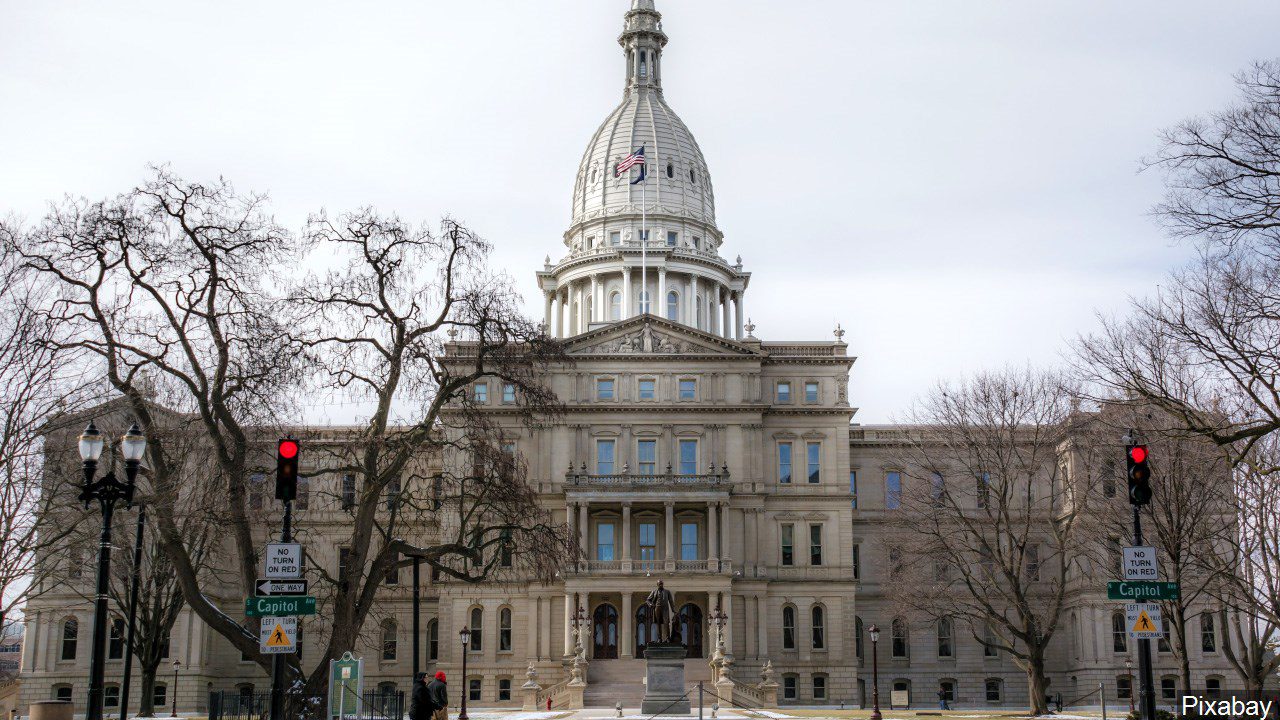Democrats adjourning Michigan Legislature to ensure new presidential primary date

Michigan Capitol (Pixabay)
LANSING, Mich. (AP) — Michigan Democrats who were passing legislation at a historic pace will abruptly end their session Tuesday as they grapple with internal divisions and a temporarily deadlocked state House.
Lawmakers are adjourning nearly a month early and delaying key legislation until next year to ensure that new legislation will take effect making Michigan the fifth state to hold its presidential primary on Feb. 27.
The decision to end early also comes after two Democratic state representatives won mayoral races, erasing the House’s slim Democratic majority. The chamber is split 54-54 until special elections can be held in several months.
Michigan Democrats had worked at a record pace at the start of the year after regaining full control of the Legislature while already holding the governor’s mansion last year for the first time since 1983. They passed a number of pent-up policy priorities, such as a gun safety package and increased protections for LGBTQ+ people and abortion rights. They also repealed a union-restricting law known as “right to work.”
But party unity has wavered in recent months and Democrats were unable to pass several key pieces of legislation before the end of the year that would have implemented paid family and medical leave, lowered prescription drug costs and increased auto insurance reimbursement rates. Gov. Gretchen Whitmer had called on the Legislature to pass paid leave in her “What’s Next Address” in August.
Democrats were facing a Nov. 29 deadline to finish the session or miss out on becoming one of the states that will kick off the party’s presidential primary starting next year. The legislation that moved the state’s primary will not take effect until 90 days after the Legislature adjourns.
Michigan is also one of the only states where the Legislature and governor’s office are not open to records requests, shielding lawmakers from “sunshine” laws that give the public insight into what they do. Democrats had vowed to change the laws but have yet to do so.
Democrats have held only a two-seat majority in both chambers for much of the year and divisions have become more visible within the party’s caucus. Earlier this month, a package of bills known as the Reproductive Health Act was stripped of key legislation, including one to repeal a 24-hour waiting period for abortions, after a Democratic state representative threatened to join Republicans in voting against the original package.
Republicans criticized Democrats for leaving key legislation on the table rather than working in a bipartisan fashion in the newly deadlocked House.
“There’s so much we can get done for the people of Michigan if we work together and govern in the middle: guaranteeing permanent tax relief, strengthening oversight of economic development, and supporting school safety and student mental health,” said Republican House Leader Matt Hall.
The representatives who won mayoral races will soon resign their seats in the Legislature, but it’s expected to be several months at least before special elections can be held in the two districts — which heavily favor Democrats.
The governor may call a special election in a representative’s district when a seat is vacated, or may direct that the vacancy be filled at the next general election, according to Michigan law.
Legislation passed this year that wasn’t given immediate effect — which requires a bill to have two-thirds approval — will now take effect 90 days from Tuesday’s adjournment.
————————-
All contents © copyright 2023 Associated Press. All rights reserved